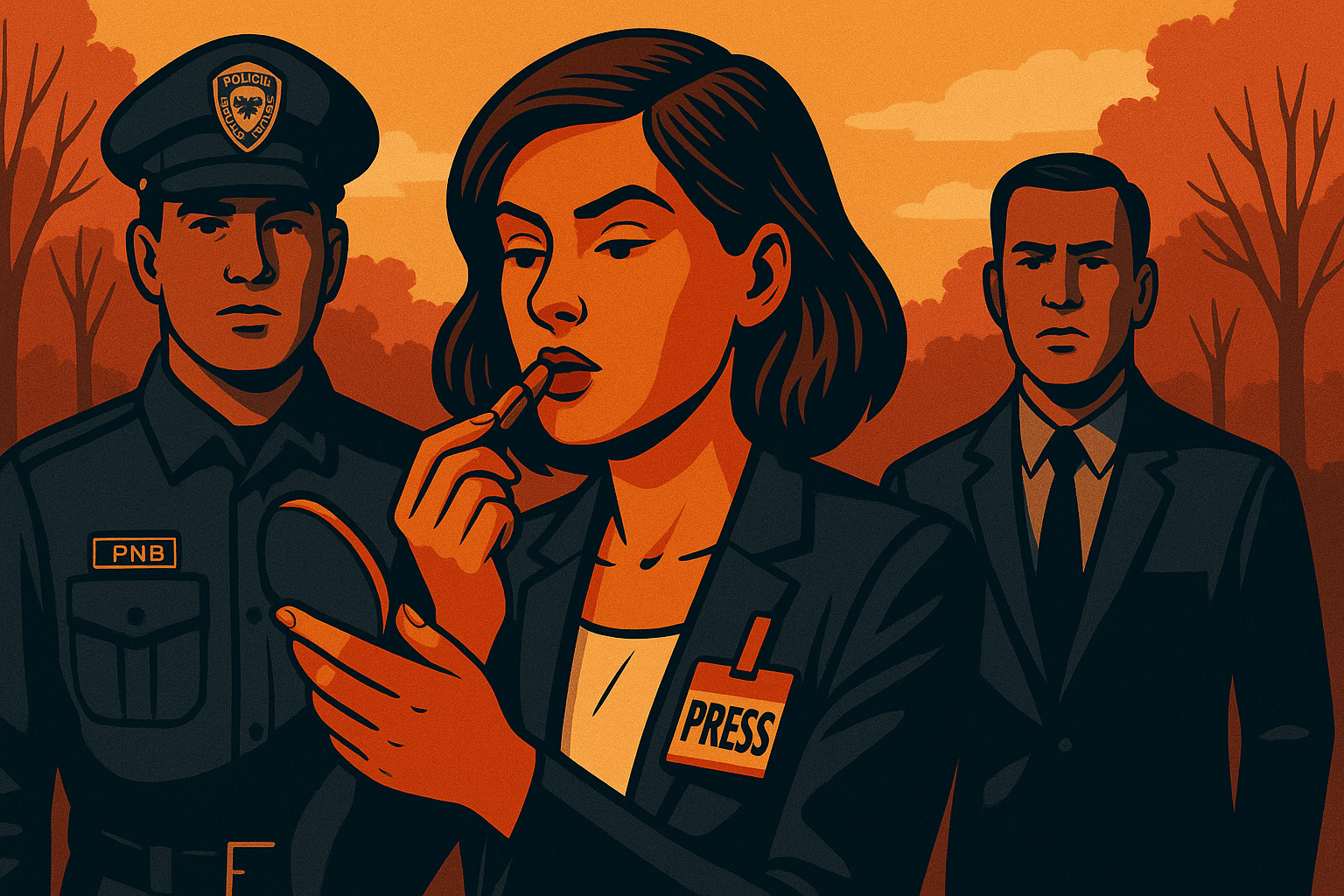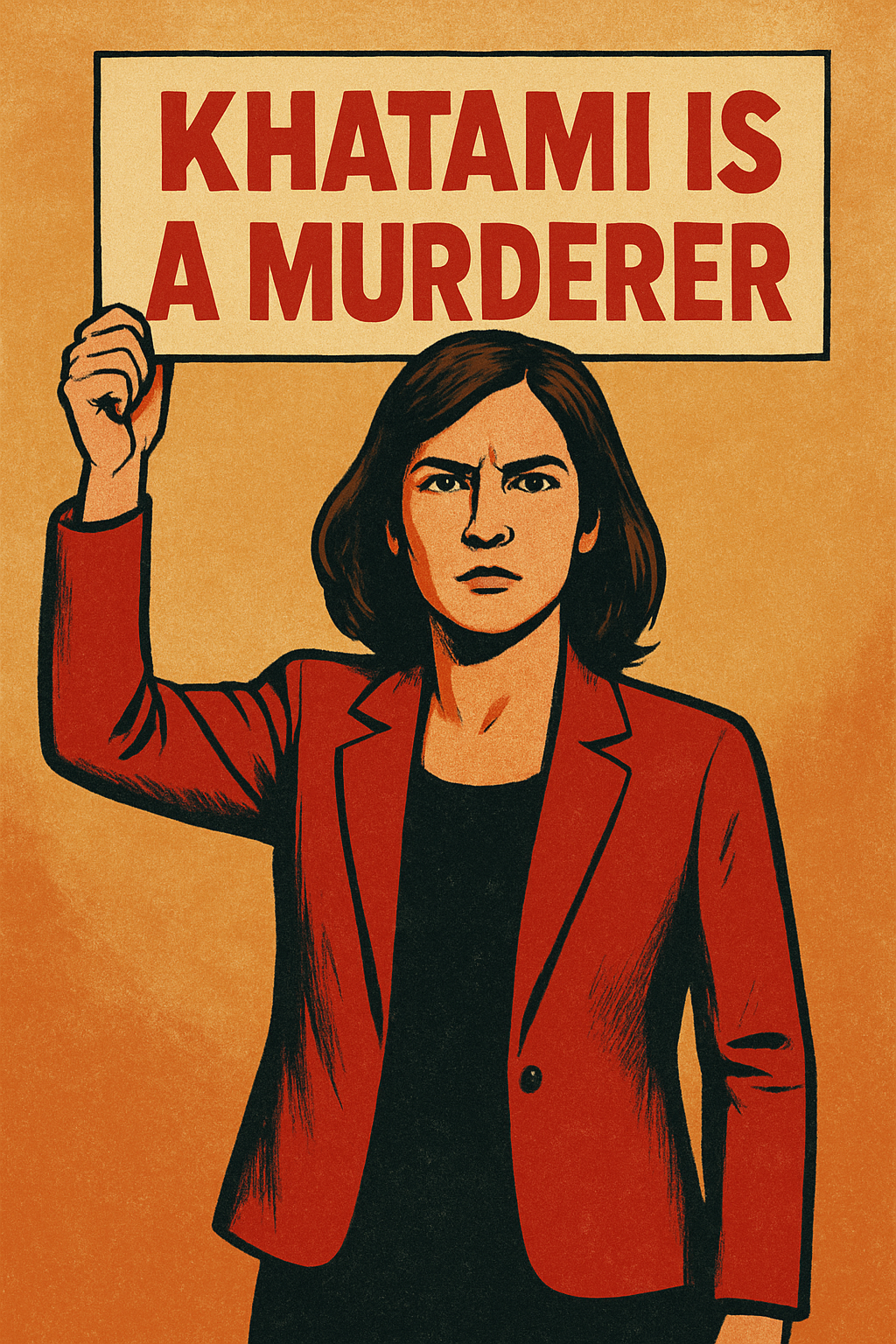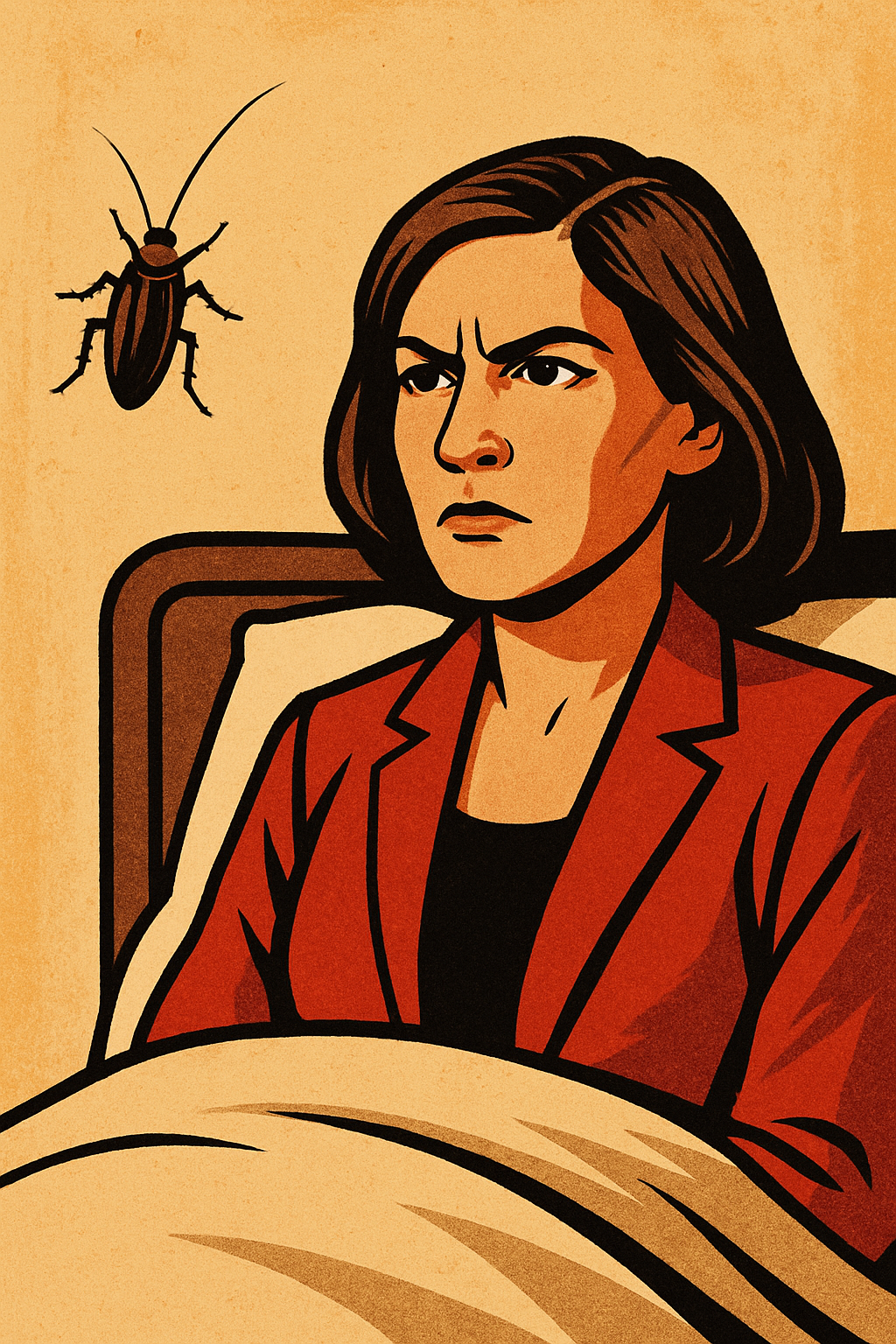Eggs, Turbans, and Tyranny: How ADHD Fuelled My Boldest Protest
In 2000, I learned that the Iranian president—a symbol of tyranny and repression—was traveling to Venezuela for an OPEC event hosted by President Chávez. As a human rights and women’s rights advocate, I had only 24 hours to prepare for my mission to expose the brutalities of the Iranian regime. The thought of publicly confronting him as a symbol of oppression was too compelling to ignore. My impulsivity—a core symptom of ADHD—kicked in, but this time as creativity: impulsivity gone right. That sealed my decision—I would go to Caracas and confront him.
With little time to spare, I arranged my travel and flew to Caracas the following morning. I had prepared eggs filled with red dye, intent on using them to humiliate him publicly as a symbolic gesture. My goal was clear: to show the world that this man did not represent the Iranian people.
Upon arriving at Caracas airport, my immediate priority was finding my way to the venue—a challenge in an unfamiliar city without the assistance of navigation tools like Google Maps. Eventually, I reached what I thought was the location of the OPEC meeting when I realised, I was in the wrong place: it was a deserted, rain-soaked university campus. Time was running out; the Iranian president was due to arrive in an hour. To add to the difficulty, it was raining incredibly hard. Despite the downpour and my drenched clothes, I remained hyper focused on my mission – an attribute of ADHD.
Finding a taxi proved difficult, as drivers warned me that the area was closed to traffic for the meeting. I had created a fake card in advance, complete with my photo, to gain access by posing as a journalist. After some persuasion and flashing the card, I convinced one driver to take me to the venue.
We reached the venue, where I was met with heavy security, with guards stationed at every corner. I tried to talk my way through, showing my “press card” and claiming I had a pass. The guards were sceptical and requested more details, but I leaned on my strengths—creativity, social intelligence, and perseverance—which I have since identified through study and training with ADDCA. Using a blend of charm, I complimented their uniforms, softening their stance and eventually distracting them enough to bypass scrutiny.
But, as we drove through, there were additional security barriers and more guards. I used similar tactics as before to pass through the second barrier as well. One guard even offered to accompany me in the taxi to ensure safe passage, allowing me to pass through multiple checkpoints until I was in the main event area—exactly where I wanted to be.
Moments Before Mayhem
The square was bustling, filled with people, media crews, security personnel, and dignitaries. Luxurious cars surrounded the event, making my old, rattling taxi stand out conspicuously. The driver was so thrilled by the scene that it took a $100 tip to persuade him to leave immediately.
I blended in, chatting casually with other journalists and even taking out a mirror to apply lipstick, hoping to appear as an ordinary member of the media. I stood with the press, waiting for the Iranian president’s arrival. As I waited, the gravity of my mission set in. I thought of the many women who had suffered under his rule—friends who had been executed, families torn apart, and countless others silenced by his regime. This wasn’t just a protest for me; it was a stand for those silenced voices.
The president finally arrived, flanked by his entourage, including his oil minister and other officials. This was my moment.

Shock, Silence, And Symbolism
Without hesitation, I approached him, smiling as if in welcome, and then slapped him across the face, sending his turban flying. Red-dyed egg splattered his clothes—blood-red, symbolic of the lives lost. I hurled another egg at his oil minister, still undeterred. Pulled out my scarf-banner: “Khatami is a murderer; he does not represent the Iranian people. Kick him out of OPEC.”
I chanted, urging onlookers to see the truth. Cameras flashed, capturing each second of this confrontation.

At last, security moved to restrain me, holding my arms and attempting to escort me out. Cautious due to the presence of media and dignitaries, they avoided using force. I continued chanting, “Kick him out!” as they led me to a large hall away from the event. As more guests gathered to observe, two men from the regime approached with an intent to harm me, but officers intervened. I spat in one man’s face, saying in Persian,
“You received the blow from where you never imagined—from a woman, whom you treat as subhuman in Iran.”
Diplomatic Games And Cockroaches
The Venezuelan officers took me to a police station, where I asserted my British citizenship. They placed me in a guarded hotel rather than a cell, likely to avoid diplomatic issues. The next morning, I was taken back to the station. However, upon my return to the hotel the next evening, I saw operatives from the Iranian regime everywhere, whispering into phones. Security grew concerned for my safety, fearing retaliation, and decided I couldn’t remain at the hotel. They explained that kidnappings were common in Venezuela and took me back to the police station to spend the night in the director’s office. The ten-minute drive became a tense, hours-long journey, as the officers took detours to evade tails from Iranian agents.

I ended up spending two weeks at the office of their director and sleeping there too. Somehow, I even managed to face my lifelong phobia with cockroaches, thanks to a couple of them right at the top corner of the wall—perfectly visible at all times. By the end, I was almost ready to call us friends.
My story spread quickly. Venezuelan newspapers ran reports on my protest, with one cheeky headline reading: “The Iranian president had eggs for breakfast, omelette for lunch, and eggs again for dinner.” The incident became known as the “great egging” among Venezuelan officers, who were amused by the embarrassment caused to the Iranian president.
The media attention intensified as the public realised my prolonged detention was in conflict with Venezuela’s constitution, which stipulates that detainees must appear before a judge within 48 hours if not formally charged. My continued detention only heightened the embarrassment for both the Iranian president and Chávez.
I decided to go on a hunger strike and, after four days without food, became extremely weak. I was taken to the hospital, where I continued to refuse food, lying in bed when officers arrived to inform me that I was to be expelled from Venezuela immediately. Chávez had declared me ‘persona non grata’ and ordered my deportation. At the airport, I was met by a sea of reporters calling my name, eager for my story. Although the guards prevented direct contact, I managed to pass along a written statement to ensure my message reached the public.

Back in Britain, Changed Forever
Back in England, I was met with flowers from friends and family. My son proudly told me,
“You went to embarrass one president and ended up embarrassing two.”
From Protest To Purpose
Reflecting on this experience, I recognise that it was a testament to my ADHD-driven determination—hyperfocus, resilience, creativity, and fearlessness coming together to help me achieve an act of defiance that seemed impossible. The ADHD brain is fuelled by interest, and that day, the risks energised me rather than deterring me. The mission aligned with my core values, and within 24 hours, I had completed it.
As an ADHD coach, my mission is to help others embrace their ADHD, harness their strengths, and overcome challenges.
If you’re ready to transform your ADHD into a superpower, let’s work together to build the life you envision.
